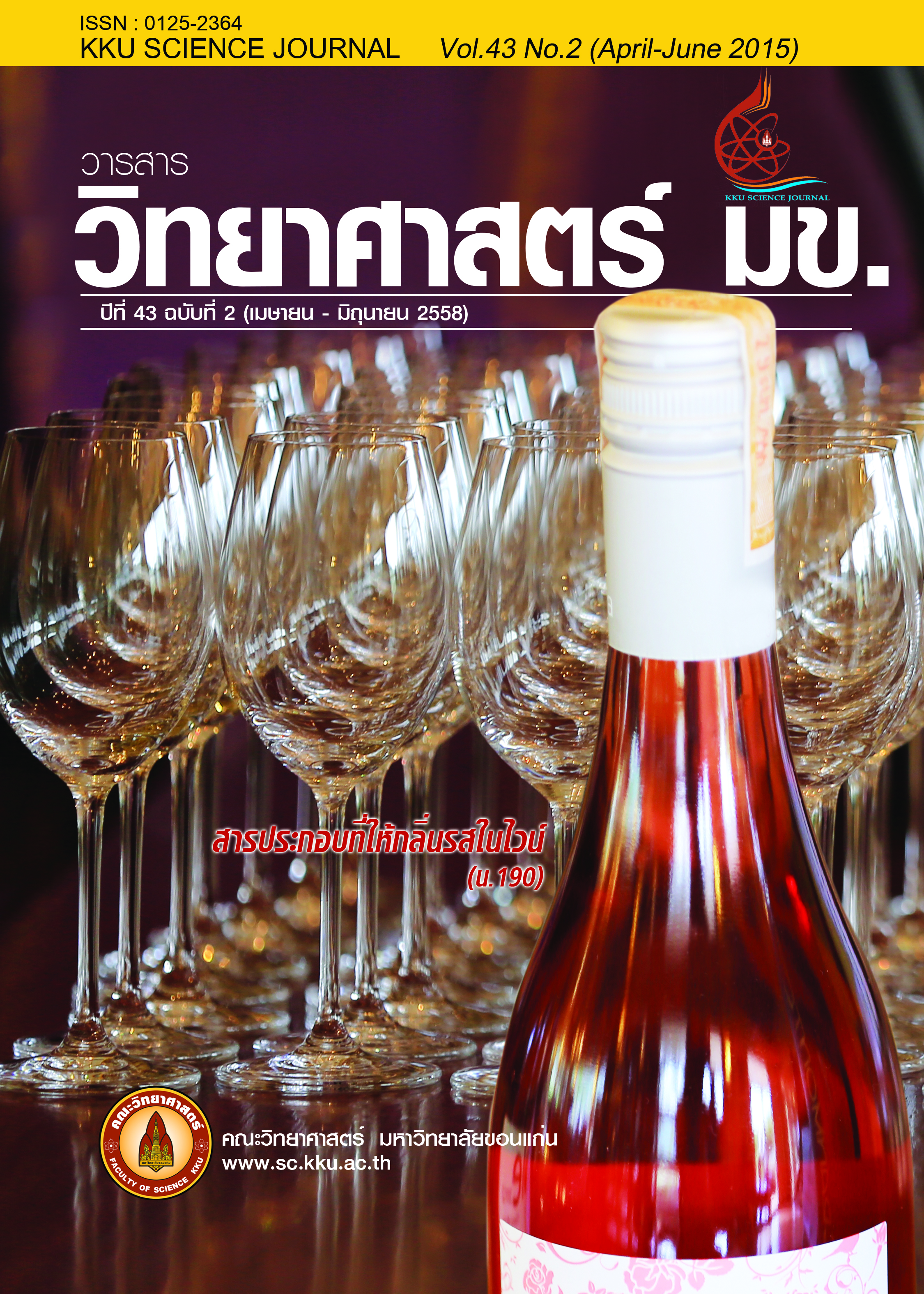Production of Resistant Starch from Rice Flour by Fermentation and Hydrothermal Treatment
Main Article Content
Abstract
The objectives of this research were to investigate the effect of fermentation and heatmoisture treatment (FHMT) on resistant starch (RS) content and physicochemical properties of rice flour. Rice flour (LuengPratil variety), fermented at room temperature for 1, 2, 3 and 4 days followed by heat-moisture treatment (HMT), were heated at 105 or 115oC for 1 hour after adjusting the moisture content to 20 or 25%. RS content of FHMT flour ranged from 1.95-5.92% depending on type of treatment. FHMT flour with the highest RS content 5.92% was prepared at fermentation time of 1 day and HMT condition at moisture content of 25% and 105oC. The viscosity of FHMT flour was analyzed by using RVA. The peak viscosity, trough, breakdown, final viscosity and set back were decreased, compared with native flour. The hardness of FHMT gel was also deceased. The thermal properties of FHMT flour, gelatinization and retrogradation, were determined by Differential scanning calorimetry. The onset temperature, peak temperature and conclusion temperature of gelatinization of FHMT flour were increased and the gelatinization temperature range was broader, whereas enthalpy of gelatinization was decreased compared with native flour. FHMT tended to decrease retrogradation of amylopectin.
Article Details

This work is licensed under a Creative Commons Attribution-NonCommercial-NoDerivatives 4.0 International License.


